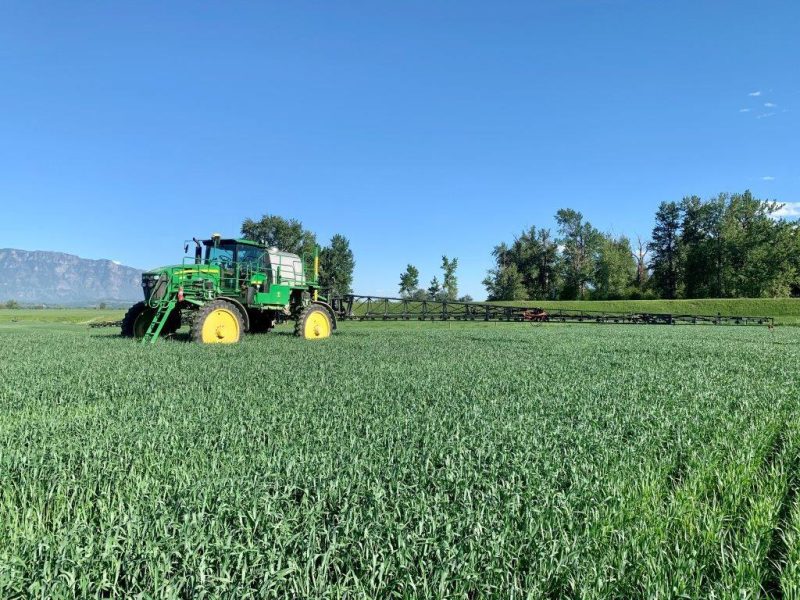Strong commodity prices have been fuelling demand for farmland across Western Canada.
The activity is fuelling hopes for a 331-acre parcel in the Creston Valley, part of the Piper Farms Ltd. and Christensen Bros. Farms Ltd. portfolio brought to market last summer by Colliers.
The owners listed 12 parcels on the west side of the Kootenay River for sale as part of a succession planning process. While demand has been good, many prospective buyers have expressed interest in smaller portions rather than the whole 4,400 acres.
This week, marketing began of Lot 2, the one parcel not contiguous with the other 11 parcels.
“I’ve had a lot of interest in smaller chunks out of the portfolio,” says listing broker Mark Lester. “The owners have said if we’re going to sell a title out of the portfolio, this would be the title that we’d sell.”
The listing materials describe the Creston Valley as “a farmer’s paradise” and note, “this expansive parcel presents an array of possibilities for agricultural ventures.”
The property is currently planted to alfalfa, timothy hay and yellow peas, but Colliers says the property is ideal for dairy, nurseries and orchards, among other uses.
“A virtual endless supply of water for irrigation; the possibilities are extensive,” it says, adding that it features direct access from Highway 3.
Lester says the property makes sense for farmers cashing out from more expensive areas as well as Prairie grain farmers seeking to mitigate environmental risks.
“People moving from west to east, it makes a lot of sense financially,” he says. “Moving from east to west, maybe it makes sense from a sustainability perspective.”
High commodity prices have given grain farmers the confidence to acquire land, according to Farm Credit Canada, which says sales are supported by revenue.
Meanwhile, the challenges farmland around the world faces from environmental and development pressures mean good tracts that allow production at scale – like those in the Creston Valley – will hold their value.
“In BC, we don’t have a lot of large-scale agricultural production, and where’s it is available, I think it’s going to be increasing in value,” Lester says. “There’s only so much agricultural land globally, and there’s a lot of things impacting it.”


 International exports climb
International exports climb